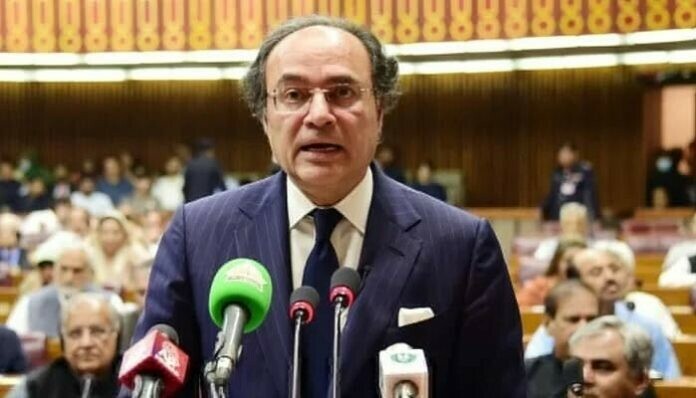Federal Minister for Finance and Revenue Senator Mohammad Aurangzeb has called for tapping the full potential of Pakistan’s capital markets to secure long-term and sustainable economic growth.
Speaking at a consultative workshop on “Unlocking Capital Market Potential for Banks” — organized jointly by the Securities and Exchange Commission of Pakistan (SECP) and the Pakistan Banks Association (PBA) — Aurangzeb proposed the creation of a Capital Market Development Council to streamline and oversee capital market affairs.
Outlining upcoming policy changes, the minister announced that the Finance Ministry will design the tax policy for FY2026, shifting this role away from the Federal Board of Revenue (FBR). He also pointed to the government’s newly launched tariff policy, stressing that related reforms are part of a home-grown agenda focused on moving Pakistan from stabilization toward sustained growth.
Aurangzeb praised the State Bank of Pakistan’s (SBP) reforms, calling them critical for economic stability, but emphasized that “the private sector has to lead this country.”
In an interaction with reporters after the event, the finance minister reaffirmed that Pakistan had exited the Financial Action Task Force (FATF) grey list and would remain out of it. Responding to a query on the exchange rate, he clarified that exchange policy is formulated independently by the SBP, not the government.
Aurangzeb also confirmed that talks with the International Monetary Fund (IMF) are ongoing. Addressing broader development hurdles, he cited climate change and population growth as “existential threats” that must be addressed if Pakistan is to meet its aspirations for 2047. On recent floods in Khyber Pakhtunkhwa, he said it was too early to assess damages as rescue and relief operations were still underway.
Earlier, SBP Governor Jameel Ahmad told participants that well-developed, diversified capital markets are essential to complement the banking system and support long-term economic expansion. While inflation has eased and growth is showing signs of recovery, he cautioned that low domestic savings remain a structural weakness, with Pakistan’s savings rate at just 7.4 percent of GDP compared to 27 percent in South Asia.
Ahmad highlighted recent SBP reforms to broaden participation in the government bond market, including the entry of non-bank institutions as Special Purpose Primary Dealers, as well as expanding Investor Portfolio Securities (IPS) accounts to microfinance banks, the Central Depository Company (CDC), and the National Clearing Company of Pakistan Limited (NCCPL). These steps, he noted, have created new investment opportunities for millions of digital banking users and laid the groundwork for deeper market development.
Despite progress in the bond market, Ahmad expressed concern about the stagnant corporate debt and equity markets, noting that outstanding corporate bonds represent less than one percent of GDP, with limited secondary market activity and weak participation from non-financial sectors. Equity market penetration also remains low, with both investor accounts and market capitalization lagging behind peer economies.
Calling for coordinated action, the SBP governor urged regulators, financial institutions, government bodies, and investors to work together to improve financial literacy, expand participation, and create a transparent, innovation-friendly market environment.
The event was also attended by PSX Chairperson Dr Shamshad Akhtar, SECP Chairman Akif Saeed, Farrukh Sabzwari, CEO PSX, along with presidents and CEOs of banks and other key stakeholders.




